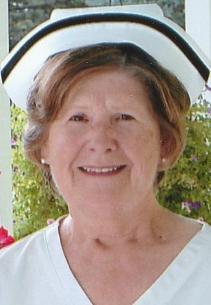I had hardly begun when she moaned
told me the hot water and soapy cloth
feels so good. Dank smell of sickness
lingers. Her back is thin, freckled, spent.
I feel the weight of every pound
her babies, toxic men, hospital work.
Beaches, NYC, where she’s never been
what she’s missed and carried, her spine’s
crevasse ripening, wide enough to let
Covid in. There are six of us, no matter
who’s in the litter, fingertips to ledge
we climb together, no safety ropes. I
don’t remember a day without dread
an hour when my back pack wasn’t
ready to go, boots near the bed, fear
the only fairytale we were ever read.
In the ambulance, then the hospital
I thought I might die she says. Hands
stop washing for a spell and I nearly
cry when she tells me the yellow lotion
all my fingers, palms tracing her ribs
reminds her of church,
our last Easter dresses, mom’s red
lipstick—how pretty she was.
What I want to say
is something about rocking
taking her into my lap and how I will
never, ever let her die.

Jeanne Bryner’s family was part of Appalachia’s outmigration. A retired emergency room nurse, she’s a graduate of Trumbull Memorial Hospital School of Nursing and Kent State University’s Honors College. She has received writing fellowships from Bucknell, the Ohio Arts Council, and Vermont Studio Center. With Cortney Davis she co-edited Learning to Heal: Reflections on Nursing School in Poetry and Prose, (Kent State UP, 2018) which won the Tillie Olsen award for Creative Writing from the Working Class Studies Association and AJN Book of the Year for Creative Writing. Her work has been adapted for the stage, performed nationally and at the 2004 Fringe Festival in Edinburgh, Scotland. In 2022, she started the Delta Xi Chapter, Nurse Honor Guard in two Ohio counties to honor her profession.
